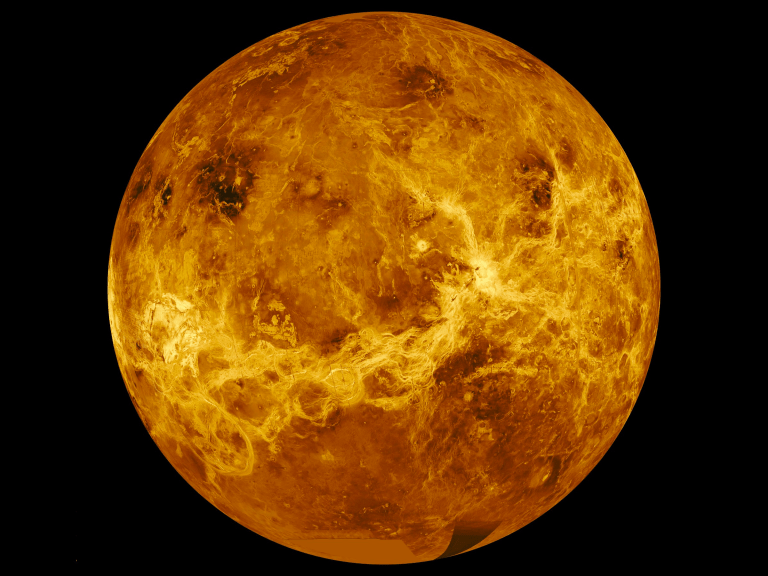In a recent peer-reviewed paper published in the journal “Nature Astronomy,” a group of scientists hypothesize that the discovery of phosphine on Venus provides evidence of intelligent life on Earth. According to the researchers, based at Cardiff University in Wales and the Massachusetts Institute of Technology (MIT), the detection of the noxious gas almost 92 million miles away in the suffocating Venusian atmosphere provides some indication that people on Earth are capable of not being complete dipshits.
“We’re still not certain why phosphine is present on Venus, but if we were really able to harness both the James Clerk Maxwell Telescope (JCMT) in Hawai’i, which has a primary reflector diameter of 15 meters, as well as the Atacama Large Millimeter/submillimeter Array (ALMA) in Chile, which is an astronomical interferometer of 66 radio telescopes, then this calls into question the prevailing notion that we’re a planet of total idiots,” writes the study’s lead author, Professor Jane Greaves. Greaves also mentioned that the collaborative effort among labs around the world is a sign that human beings are sometimes capable of working well in international teams.
Researchers are being cautious and still cannot determine with full confidence if this discovery was a complete fluke or the result of decades of diligent adherence to the principles of physics, chemistry and biology. “We’ve long thought that intelligent forms of life had a greater chance of thriving on the scalding 464°C surface of Venus compared to the surface of Earth, which is stifled by climate change skepticism, a refusal to wear face-coverings to slow the spread of COVID-19, QAnon conspiracy theories that have gained political legitimacy and the rapid spread of misinformation of social media platforms such as Facebook,” write the authors in the report’s conclusion. “Yet, we’re hopeful that this discovery could spur further explorations of Earth to confirm the existence of knowledgeable, determined and compassionate individuals in our own society who are willing to build a more sustainable and equitable world.”
Editor’s Note: This article is purely satirical and fictitious. All attributions in this article are not genuine, and this story should be read in the context of pure entertainment only.
Contact Prateek Joshi at pjoshi2 ‘at’ stanford.edu.
